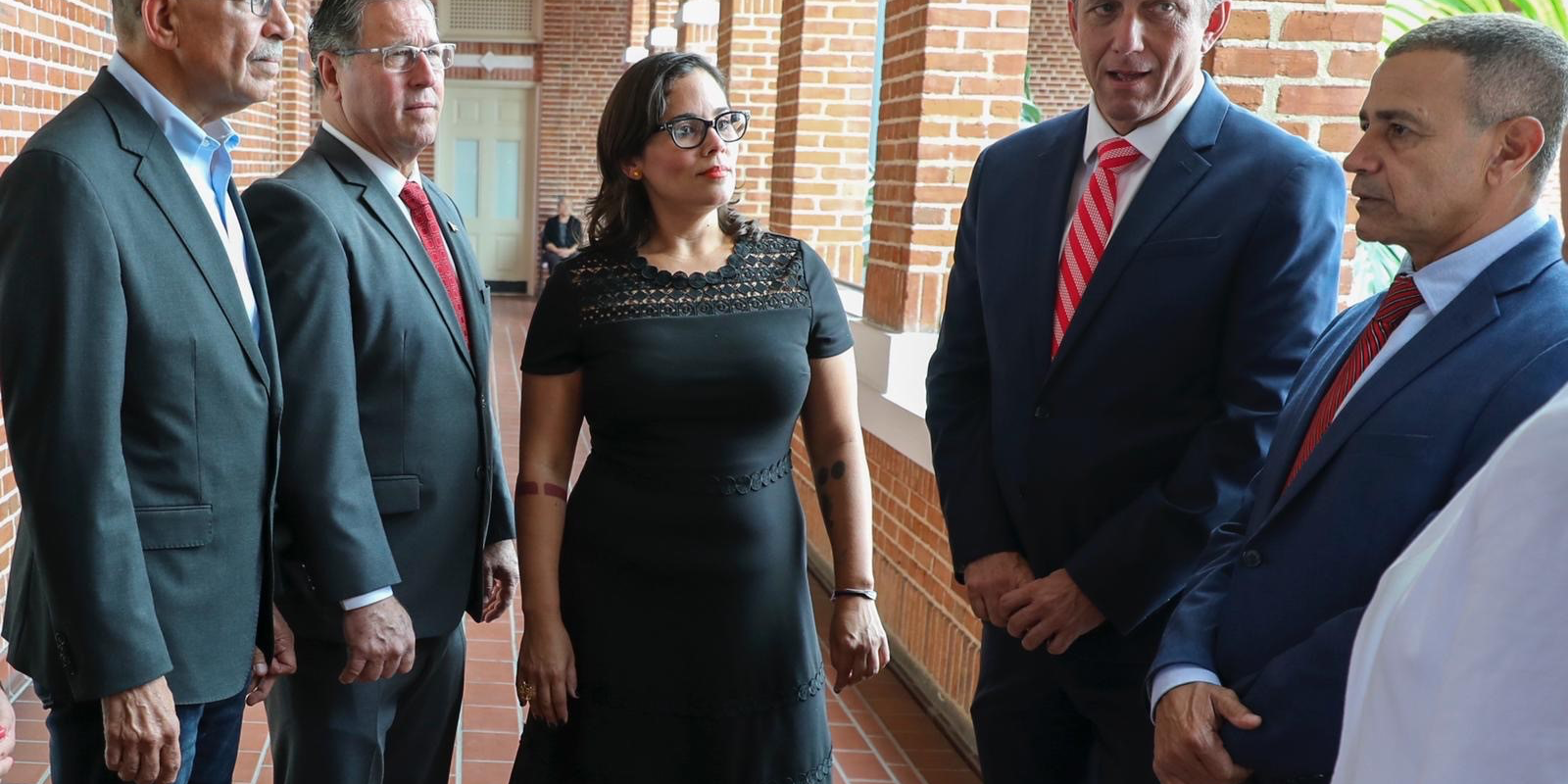Corey Holland | March 4, 2021
How does change occur at the local governmental level? Many experts, advocacy organizations, academics, and ordinary citizens have diverse theories. La Liga De Ciudades Puerto Rico (La Liga) aims to create change by unifying local municipalities in Puerto Rico around the ideas of improving Puerto Ricans’ lives. Puerto Rico faces social, structural, economic, and governmental obstacles. La Liga believes creating a bi-partisan reform platform is one of the best ways to address these issues.
La Liga found its roots after hurricanes Irma and Maria devastated the island in 2017. In the following years, local mayors made an unprecedented effort to learn best practices from one another during reconstruction. As organizations such as the Ford Foundation, Open Society Foundation, and Center for New Economy joined in partnership with local efforts, there was also an international convergence. La Liga formed two years later to solidify the continued intersection of local government, private, and nonprofit partnerships.
Currently, La Liga focuses on building partnerships, advocacy, capacity building, and strengthening and defending policies beneficial to Puerto Ricans. They came to Feedback Labs to seek new ideas in key areas surrounding their growing organization’s development. There were two main challenges centered around community engagement and political buy-in:
- Leveraging Community Voice. Although the organization officially launched in 2019, La Liga has taken some time to communicate and engage with community members fully. Citizens, however, hold the keys to establishing the policy agenda for La Liga and the organization wants to incorporate more of these citizen voices in their work. LabStorm attendees discussed how La Liga could increase their social media presence, particularly in those online spaces unique to Puerto Ricans. Social media has become a mainstay in many movements globally, and the group further discussed how La Liga could work with local mayors to get their message out via social media to communities and offer citizens a chance to interact.
- Working with Politicians. Conveying the importance of La Liga to local politicians is the other part of the battle. Many local mayors are not used to working collaboratively with other municipalities. Much of the feedback received during the LabStorm focused on ways to get buy-in from municipal workers. One LabStorm attendee mentioned the critical step of researching local concerns before meeting with a mayor or city official. By understanding the local problems, La Liga could pitch the ways their organization could address those specific challenges. Taking the first step of understanding each mayor’s needs followed by effective communication was a common theme in the LabStorm discussion. By following this process, La Liga can better close the loop with mayors on how their partnership will benefit their constituents’ lives.
- Seek Support From Funders. Like every organization, La Liga needs capacity-building funds to grow and sustain itself. LabStorm attendees recommended for La Liga to lean upon their international philanthropic partners more to garner resources. Specifically, one LabStorm attendee shared how La Liga can align itself with funders with similar policy and advocacy values. They can position themselves as grassroots-level experts, trusted partners, and serve as a resource for philanthropic organizations. More and more philanthropic organizations are becoming interested in advocacy and systems change.
-
This LabStorm was presented by Cristina M. Miranda Palacios and illustrated the importance of coalition building between elected officials, community organizers, and the communities they serve.
Cristina M. Miranda Palacios is a social and community planner and serves as the Founding Executive Director of the League of Cities, a nonprofit nonpartisan organization that aims to strengthen the capacity of local governments and communities on the island in the face of social, physical, fiscal, and governance challenges. She is currently completing her doctoral studies at the Center for Advanced Studies of Puerto Rico and the Caribbean, where she will complete her doctorate in history and philosophy. Her area of interest is the impact of partisan politics on the development of social policies.
Before returning to Puerto Rico in 2003, Cristina lived in Washington, DC, where she completed a professional internship at the Environmental Protection Agency (EPA), Office of Environmental Justice. She also worked as second in command at the Executive Office of the Mayor, Office of Latino Affairs, and at the Hispanic Scholarship Fund Institute, where she oversaw the development of alliances and identifying funding to support Latinos in higher education. You can reach Cristina at [email protected]. To learn more about La Liga De Ciudades Puerto Rico, please visit their website, ligadeciudadespr.com or follow them on Twitter at @LigaCiudadesPR.
LabStorms are collaborative problem-solving sessions designed to help organizations tackle feedback-related challenges. Presenters leave the experience with honest, actionable feedback and suggestions to improve their feedback processes and tools. To learn more about participating in a virtual LabStorm, please visit feedbacklabs.org/labstorms. If you are interested in presenting at a future LabStorm, please email [email protected].







